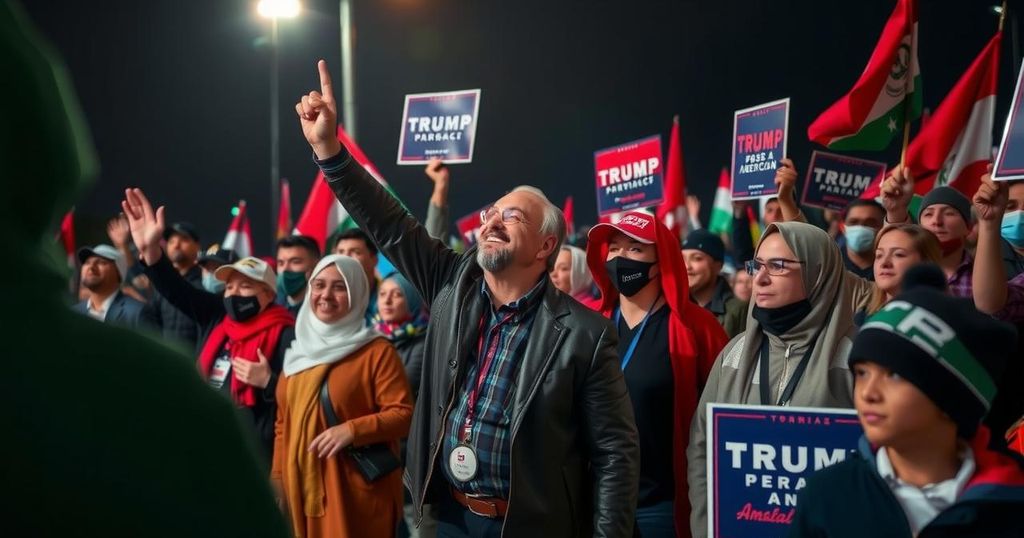Amid growing disenchantment with the Democratic Party’s handling of foreign policy and cultural issues, many Arab-Americans in Michigan are expressing an unexpected willingness to support Donald Trump in the upcoming election. This shift could significantly impact the electoral dynamics in swing states like Michigan, as the traditional loyalty to Democrats appears to be waning in light of perceived neglect and frustration over current administration policies.
In a surprising shift within the politically influential Arab-American community of Michigan, many voters, particularly in cities like Dearborn and Hamtramck, are expressing a growing inclination toward supporting Donald Trump in the upcoming electoral contest. Despite Trump’s previous inflammatory remarks regarding immigrants and specific anti-Muslim rhetoric, individuals in these communities cite a profound disappointment with the current Democratic administration, particularly in light of the U.S. foreign policy impact on Middle Eastern issues such as the conflicts in Gaza and Lebanon. The discontent extends beyond foreign policy; local cultural dynamics, particularly concerning social values, have contributed to this pivot. Conversations with first-time voters revealed a desire for change and a reflection of a profound sense of being overlooked by the Democratic Party. Mayor Amer Ghalib of Hamtramck, a Democratic Party member, has publicly endorsed Trump, illustrating the fracture within traditionally loyal voting blocs. Interviews indicated a growing sentiment that Trump’s potential policies might be an unpredictable alternative to the current administration’s stance on various issues, including social and immigration policy. For instance, one local resident, Samraa Luqman, stated her frustration with the Democrats by asserting, “The genocide… I will still vote for him because one thing I hate more than all those other policies is genocide.” This sentiment represents a broader concern within the Arab-American community, suggesting that they feel their perspectives and needs are not being adequately represented by the Democratic leadership. As this demographic holds significant electoral sway in Michigan, the implications of their shifting allegiances could be pivotal for the upcoming election.
The article explores the complex political landscape of Arab-American voters in Michigan, highlighting a notable trend of shifting allegiance towards Donald Trump amid dissatisfaction with the current Democratic administration led by President Joe Biden and Vice President Kamala Harris. Historically, Arab-Americans have been a crucial voting bloc for Democrats, but recent events, particularly concerning U.S. foreign policy in the Middle East, have prompted many to reconsider their support. The article delves into personal testimonies from young voters who reflect a growing frustration with perceived neglect by the Democratic Party and a willingness to explore alternative options, including Trump, despite his controversial past statements on immigration and Islam. This trend raises questions about the broader implications for the Democratic Party in upcoming elections, especially in swing states like Michigan.
The emerging trend of Arab-American voters leaning towards Donald Trump in Michigan underscores significant dissatisfaction with the Democratic Party’s handling of critical issues, both domestically and internationally. As the Arab-American community reflects on their past experiences and current sentiments, it appears that frustrations regarding cultural values and foreign policy have catalyzed this substantial political shift. This phenomenon may prove crucial in determining the outcome of the 2024 election, as the stakes continue to rise in swing states where every vote counts. The responses from community leaders and young voters alike demonstrate a pronounced need for the Democratic Party to re-engage and address the concerns of Arab-Americans if they wish to retain their support in the future.
Original Source: news.sky.com






